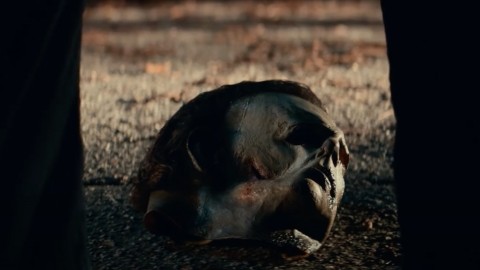
At Sunday’s E3 Xbox and Bethesda showcase, Microsoft showed off 30 impressive-looking games. Twenty-seven of these will find their way onto Game Pass, the company’s ludicrously generous ‘Netflix of games’ where you can binge on all the games you want for a tenner a month. The only limit is hours in the day, and how tolerant your employers are to increasingly implausible sounding sick days.
- READ MORE: Game show shooter ‘Deathrun TV’ is equal parts Smash TV, Nuclear Throne and societal despair
A Game Pass Ultimate subscription – which supports Xbox, PC, and streamed games – is simply stupendous value for money, especially with discounted codes, and I personally am signed up until 2024.
And yet, I can’t get over the feeling that by embracing the Game Pass way, we may all be missing out on something.

The tyranny of choice
When the Nintendo DS came out, I purchased a flash cartridge for it. This wasn’t intended for piracy – I’ve always been the tedious bore that lectures others about paying for games. But with DS titles being so tiny, I did initially use the flash cartridge as a ‘try before you buy’ on some games I was on the fence about. A sort of Game Pass without Nintendo’s consent (sorry Mario).
You know what I found? There was too much damned choice. I didn’t give any of the free games a fair shot, because other titles were waiting in the wings, ready to be sampled for five minutes at no extra cost. Instead of dedicating myself to fairly assessing the titles, I found myself reverting to the cartridges I’d paid good money for instead.
There’s a psychological term for this: overchoice. The idea is that humans are actually happier when there are fewer decisions to be made, and therefore less chance of going wrong. And while the consequences of having too many titles might not be particularly serious in the greater scheme of things, I do wonder how different my life in games would look if I’d had access to Game Pass for the last 20 years.
Take my favourite game of all time: Spelunky. I’m in the 3.5% of players to have completed a Hell Run on Steam, and those familiar with it will know that means I’m likely into four figures’ worth of hours dumped at the altar of Kali – even before you consider that I own it for Xbox 360 and PS4 as well (yes, I know.)
But the truth is that I didn’t actually like the game when I first tried it – I just couldn’t see what the fuss was about. Yet, having put the money down for it on Xbox, I felt obliged to keep playing until it clicked for me. And then it clicked so hard I completed Hell Runs across every format it was ported to. I like to think it was my over-enthusiastic support that funded last year’s sequel – you’re welcome, Spelunky fans.

I’m equally confident that I would have bounced straight off Hunt: Showdown – a game I credit with getting me and my oldest friends through the nightmare of lockdown. Hunt is a game that doesn’t ease you in gently, but once again having paid money for it, I stuck around long enough to see the true genius of the game’s design.
Thankfully, even if every other subscriber has my limited attention span, developers shouldn’t be suffering too much on the surface of things. The way devs are paid for having their games on Game Pass is, to quote Xbox boss Phil Spencer, “all over the place,” and clearly not all are compensated according to the Spotify model of total plays.
But even if developers are given a flat fee for giving away their babies free of charge, they may still be selling themselves short, and not just for the possible revenue they could gain if they were sold via more traditional methods.
Back in 2008, a study from Stanford GSB and the California Institute of Technology found that participants sampling wine would get more activity in the medial orbitofrontal cortex – a part of the brain associated with pleasure – when they were told the bottle cost $45 rather than $5.
As every student will tell you, there’s always a place for a $5 bottle of wine, but games are different. If Game Pass releases are viewed as costing $0, then it’s possible that, subconsciously, players could view certain titles as worthless. Or at least, less valuable than something they have to pay money for.

All you can beat
Despite this, there’s an element of me playing Devil’s Advocate here. Aside from anything else, finding games I paid money for elsewhere popping up on Game Pass is becoming a semi-regular occurrence, with Hades set to be the latest to join this slightly irritating club.
I have no doubt that I’ll continue to fill my boots over the next two years of my membership on this incredibly generous All You Can Eat model – especially if it continues to offer both unbeatable quality and quantity.
But the ‘All You Can Eat’ analogy is oddly appropriate, because I have a suspicion I’ll end up feeling the same way I do when I hit Pizza Hut’s buffet: extremely full, but wondering if I’d have been better off paying more to dine elsewhere.
Xbox Game Pass is a thing you can pay for right now. If you’re curious about what the deal is with E3, you can see our E3 2021 coverage here
The post Xbox Game Pass is great, but I have one major worry appeared first on NME.









